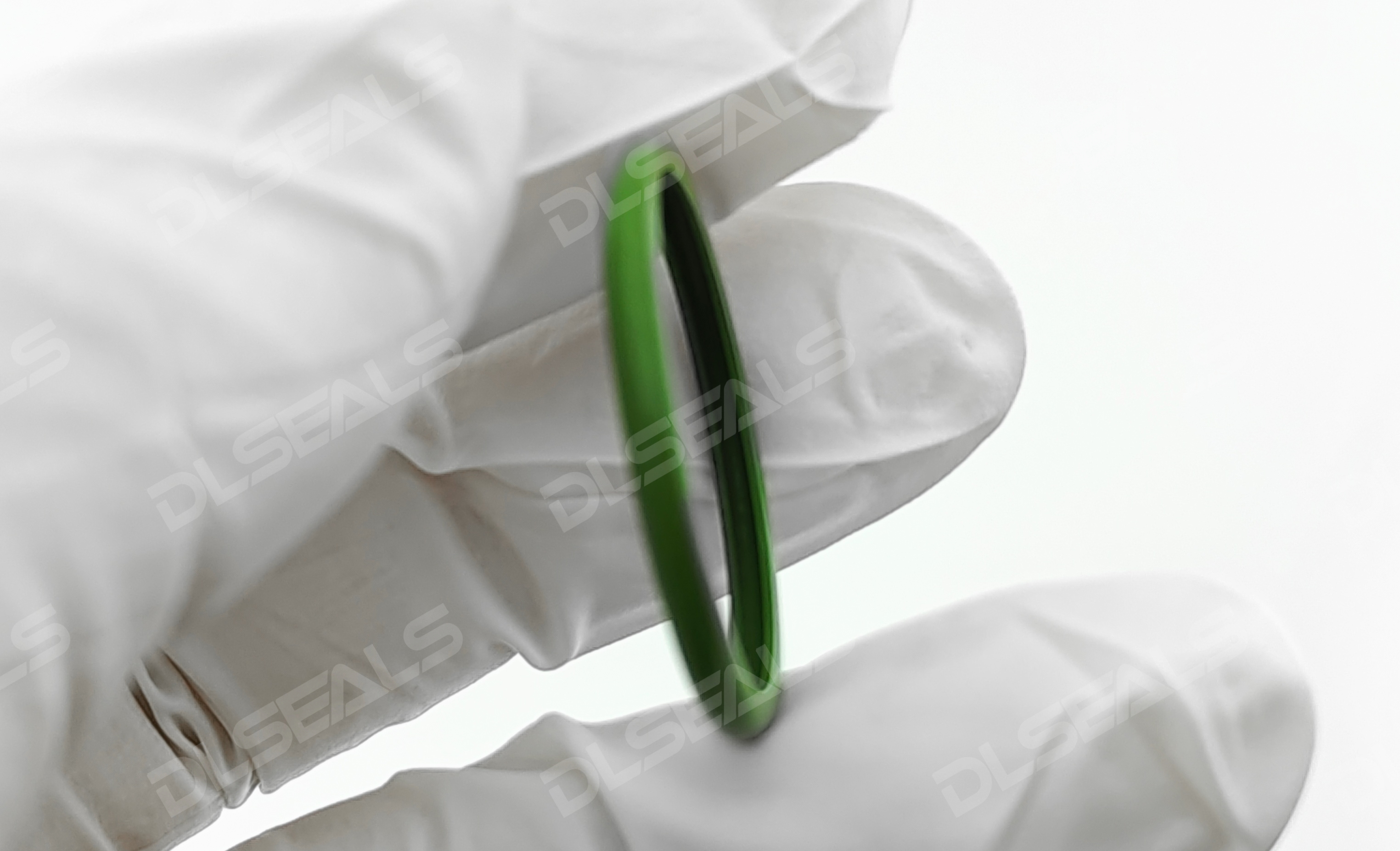News
A2025-10-17

In industrial applications, from aerospace engines and petrochemical valves to automotive fuel systems, metal gaskets play the vital role of "goalkeepers." They must hold the line in extreme temperatures, high pressures, and corrosive environments, guaranteeing system integrity. However, bare metal gaskets are not perfect. Adding a thin coating is like equipping them with custom "armor," leading to a leap in performance. This article details common metal gasket coatings (like PTFE, Copper, Nickel, Silver) and their key advantages.
Before diving into specific coatings, it's essential to understand what core problems this micron-thin "garment" solves.
Enhanced Sealing: Metal surfaces are microscopically rough. A coating, being softer, can easily fill the microscopic voids against the flange surface during tightening, creating a tighter seal and reducing leakage.
Reduced Friction, Prevention of Galling: During installation/removal, metal-to-metal contact can cause heat buildup, leading to surface fusion, known as "galling" or "cold welding." Coatings act as solid lubricants, significantly reducing friction for easier installation and ensuring intact removal for maintenance.
Superior Corrosion Resistance: The most well-known function. The coating isolates the base material (e.g., stainless steel, carbon steel) from corrosive media (e.g., acids, alkalis, saltwater) with a more chemically stable layer.
Base Material Protection: Softer base metals (e.g., aluminum, soft iron) are easily scratched. A hard coating (like nickel) acts as a tough "armor," protecting the base from handling and installation damage.
Different coatings are like specialized soldiers, each excelling in specific environments.
1. Polytetrafluoroethylene (PTFE) Coating – The Non-Stick Lubrication Master
Key Advantages: Lowest coefficient of friction, exceptional chemical inertness, wide temperature range (-190°C to +260°C).
Primary Functions:
Ultimate Anti-Galling: PTFE has one of the lowest coefficients of friction, providing unparalleled anti-galling and lubrication, ideal for frequently disassembled connections.
Broad Chemical Resistance: Resists almost all strong acids, alkalis, and solvents, perfect for highly corrosive environments.
Non-Stick Property: Prevents media adhesion, easy to clean, crucial in food, pharmaceutical, and chemical industries.
Typical Applications: Strong corrosive media, high-purity requirements (food, semiconductor), frequently disassembled piping flanges.
2. Copper Coating – The Soft, Conformable Filler
Key Advantages: Soft, ductile, cost-effective.
Primary Functions:
Excellent Conformability: The soft copper layer excellently fills flange surface imperfections, ensuring efficient initial sealing, especially for flanges with higher surface roughness.
Galling Prevention: As a soft metal, it effectively prevents galling between materials like stainless steel.
Thermal Conductivity: Good thermal conductivity helps distribute heat evenly in high-temperature applications.
Typical Applications: Sealing on rough flange surfaces, low-pressure static seals, as an undercoat for other coatings (e.g., nickel) to improve adhesion.
3. Nickel Coating – The Tough All-Rounder
Key Advantages: High hardness, good wear resistance, excellent corrosion resistance.
Primary Functions:
Abrasion-Resistant Armor: The hard nickel layer resists scratching and wear, suitable for seals with slight movement or vibration.
Corrosion Protection: Resists alkalis, salts, and non-oxidizing acids well, protecting the base material from various corrosives.
High-Temperature Oxidation Resistance: Forms a dense oxide layer for good stability at high temperatures.
Typical Applications: High-temperature/pressure environments, applications with vibration/fretting, resistance to alkaline corrosion.
4. Silver Coating – The High-End Conductor
Key Advantages: Highest electrical and thermal conductivity among metals, good lubricity, high-temperature oxidation resistance.
Primary Functions:
High-Temp Anti-Galling: Maintains excellent lubricity at high temperatures, making it the top choice for preventing galling in engines, gas turbines, etc.
Conductive Sealing: Essential where electrical continuity and sealing are required simultaneously (e.g., electrical connectors, aerospace components).
Superior Thermal Conductivity: Rapidly draws heat away from the seal area, preventing local hot spots, ideal for systems with frequent thermal cycling.
Typical Applications: Aircraft engines, high-temperature steam valves, special seals requiring electrical conductivity, very high-temperature petrochemical equipment.
Selecting a coating depends on the specific operational "profile":
Consider the Medium: For strong corrosives, choose PTFE or Nickel; for fuel oil systems, consider Silver or Nickel.
Consider Temperature: For ambient to medium temperatures, PTFE or Copper; for very high temperatures (>500°C), prefer Silver or Nickel.
Consider Pressure & Friction: For high pressure or micro-movement, choose hard Nickel; for very low friction and easy disassembly, choose PTFE or Silver.
Consider Cost: Copper is cost-effective; Silver and PTFE coatings are relatively more expensive.
Conclusion
The coating on a metal gasket, though thin, is critically significant. It's not just a simple anti-corrosion layer but a key engineering solution that enhances sealing, ensures system safety, and extends service life. Understanding the properties of PTFE, Copper, Nickel, and Silver coatings is like equipping your sealing toolkit with specialized tools, allowing you to select the most precise, economical, and reliable option for any operational challenge, maximizing the value of the small gasket in harsh industrial environments.
[DLSEALS kindly Reminder] Sealing issues? Turn to DLSEALS! As a sealing component manufacturer, we specialize in customizing sealing components, providing a full range of services from design, research and development, production, testing, and more. If you have more information you'd like to know, feel free to contact us directly. DLSEALS's product experts are dedicated to serving you!